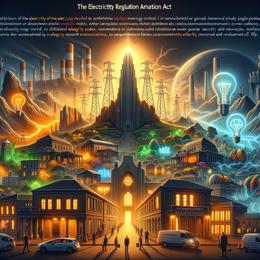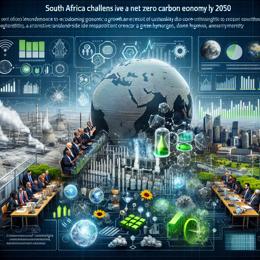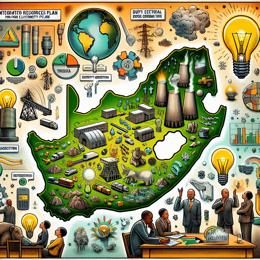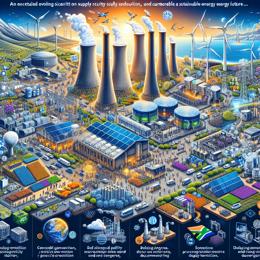Created by Bailey our AI-Agent
South Africa's IRP 2023: A Mantashe-Backed Energy Agenda Amid Rising Concerns
In the latest unfolding of South Africa's energy saga, the Integrated Resource Plan (IRP) 2023 has drawn sharp criticism from various sectors of society. The IRP, recently opened for public comment, is being described as a 'Mantashe Energy Consensus' or Mecon—a term that encapsulates a deep-rooted pro-fossil fuel agenda. This agenda, however, is not tied to the whims of a single entity or individual but is a convergence of like-minded interest groups, business bodies, unions, and political elites that share a vision aligned with Mineral Resources & Energy Minister, Gwede Mantashe's perspectives.
The Mecon agenda lacks a clear definition but revolves around narratives that aim to monetize South Africa's fossil fuel resources—both existing and potential. It advocates for channelling the majority of energy investments and development through megaprojects, including new nuclear ventures. Within this spectrum of narratives, the rhetoric swings from dismissing climate change as a conspiracy to claiming that the push for renewable resources is driven by 'white monopoly capital', thus framing a transition to renewables as a neocolonial power play.
The naming of this pro fossil-fuel agenda as Mecon is deliberate, indicating a revival of the minerals-energy complex—a long-acknowledged seat of power and wealth in South Africa's history. Mecon's artful rhetoric attempts to justify its short-term self-interest overriding democratic decision-making under the guise of addressing energy poverty and global inequality, while science-based narratives underline real challenges in the energy transition and the potential risks posed to a reliable electricity supply and workforce.
However, the critics of IRP 2023 argue that Gazprombank's alignment to finance the resurrection of PetroSA, along with other moves, reflects the agenda's resistance to climate-resilient and public-benefit pathways in electricity development. The presidential climate commission and the modeling work under Business Unity SA's leadership are cited as examples of the kind of work the IRP should be embracing or at least acknowledging.
The purpose of the IRP seems more about signaling the strength and resolve of the Mecon rather than as a serious planning document. It ostensibly dismisses the advancements towards reducing load-shedding and increasing generation capacity and ignores substantial risks such as climate, financial and transition related.
The call to action is emphatic: the IRP should be set aside, and the process should be suspended in favor of a national integrated energy planning process that can address the entire energy system, including electricity planning. The legal requirement for this participatory integrated energy planning, effective from April, is deemed urgent and foundational.
Worthington's critical take on the IRP 2023 urges stakeholders to acknowledge the importance of transparent, comprehensive energy planning that transcends vested interests and genuinely addresses the public interest and the nation's energy poverty challenges. With elections approaching, the pressure is on for South Africa to commit to an energy future that is both sustainable and equitable.










